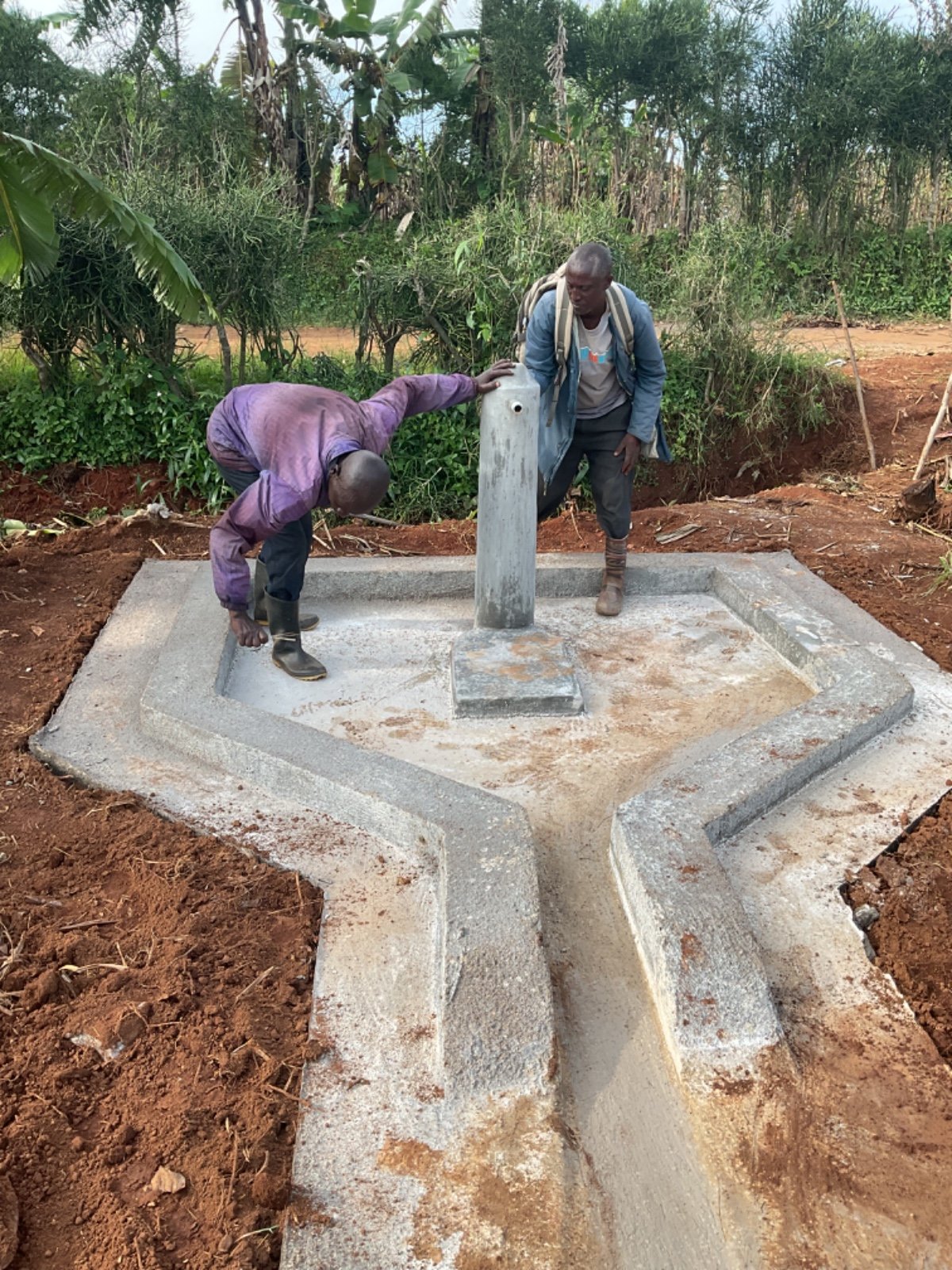PROJECT KICKOFF
We are pleased to announce that construction on the Ryabitari-Gatoga water system broke ground on May 1, 2024. The system was made possible by a generous donation in honor of his son Zachary. Zachy's Water Well of Life from a charitable fund called, “The Unblemished Sole.” The donor explains, “due to his son's disabilities, the soles of every pair of shoes that he's ever had are perfectly unblemished."
This water system marks a new beginning for the Ryabitari-Gatoga community by delivering permanent and close access to clean water. Currently, there is no clean water located near the community. By abject necessity, the majority of the population relies on a primary water source that is several miles away from the community, and the water there is contaminated.
Preventable, water-borne diseases are the leading cause of death in Burundi, which has the 12th highest child mortality rate globally. Communities with Gazelle Foundation water systems have drastically reduced, and in some cases eliminated, the presence of water-borne illnesses among the families that live in them.
Thanks to a generous funder this project serves 1,000 people.
WATER ACCESS PRIOR TO CLEAN WATER SYSTEM PARTNERSHIPS
Building sustainable water systems breaks the cycle of poor health and poverty. The fact is, that preventable, waterborne diseases are still a leading cause of death in Burundi. Communities with Gazelle Foundation water systems have drastically reduced, and in some cases eliminated, the presence of water-borne illnesses among the families that live in them.
Clean water means clear futures for the residents whose young people can pursue education while their families can devote more time to farming and other economic activities to strengthen their community’s long-term resilience. Access to clean and safe water for their daily use ensures environmental, economic, and social health, an important legacy of sustainability which is built into each project.
Project Overview
Construction dates: May 1, 2024 - July 25, 2024
Located in Kinyinya Colline, of Matana Commune
Scope: 3km pipeline.
3 new storage tanks
8 tap stands
Employees: 30 workers including masons and plumbers
Serves 1,000 residents
Project Schematic
The project is located in Kinyinya Colline, of Matana Commune. Learn more about the provinces and collines of Burundi.
Gazelle Foundation is Uniquely Qualified for this project
We continue to maintain a 100% success rate. Hiring local workers for the project construction also develops local knowledge for upkeep and maintenance, as the ownership of all water systems are turned over to the community upon completion. Meet our project manager.
Left: Tap stand detail. The drawing includes specifications for construction details and materials. Right: Tap stand during construction of a different water system.
HOW IT WORKS
Water is captured from a source before it can become contaminated. It is filtered in the collection chamber and flows onward. Entrenched PVC pipe carries water to tanks and to multiple tap stands. Tap stands are strategically positioned within easy walking distance to schools, churches, community centers, and other central locations to maximize access points for residents. Water is available for free to all people regardless of the person’s tribe or religion.
Follow our progress on Facebook and Instagram for the most up-to-date details.
Workers carrying out site work, square collection chamber is visible at left.
Workers hand digging trenches for pipeline.
Economic Benefits of Clean Water Investment
According to the World Health Organization, every dollar invested in clean water yields $4 - $12 in economic returns. In Burundi, building water systems provides jobs and stimulates local economies in a country with one of the highest unemployment rates in the world, and where the average family lives on less than $600 a year.
For this project, 30 local workers have been hired to help with system construction, including masons and plumbers. We also purchase supplies and materials locally, giving the community’s economy a further boost.
Construction UPDATES
INTERIM PROJECT UPDATE: 1
Jean Bosco Ndabaniwe, our project manager, reports progress on Zachy’s Water Well of Life is moving along well. Milestones completed as of June 4, 2024, include:
Source catchment is complete
Tank 1 is 60% complete
Collection Chamber is complete
Digging trenches is around 2km
Connection of pipes is around 1,2 km
INTERIM PROJECT UPDATE: 2
Progress on Zachy’s Water Well of Life is moving along well. Milestones completed as of June 30, 2024, include:
Source protection is complete
2 tanks are complete
3 tap stands are complete
Digging trenches is complete
Connection of pipes is around 2 km









SYSTEM COMPLETION
Zachy’s Water Well of Life / Ryabitari-Gatoga water system was completed on July 25, 2024 over two weeks early. It serves 1,000 people. Construction of the system provided work for 30 local residents.
It brings us, 1,000 people closer to achieving our goal of providing every person in Burundi with clean water, the highest quality of life, and hope within reach.
One of the key components of our work is the handoff of the water system. Upon completion, we turn ownership and stewardship of the system over to the community. The local workers employed to build our systems have the maintenance knowledge that allows for greater long-term viability and sustainability of our systems. Read more about the handover.













JOIN OUR MISSION
This project was funded by a supporter like you. We thank the generous donors for changing the lives of the people in this community through access to clean water.
Our next water system depends on you! We have 36 months of shovel-ready projects lined up - all we need is your support. Help us give the gift of clean water to those that need it most.
The Gazelle Foundation is thrilled to work with incredible team and sponsors. With joy we are transforming lives across the globe.
















